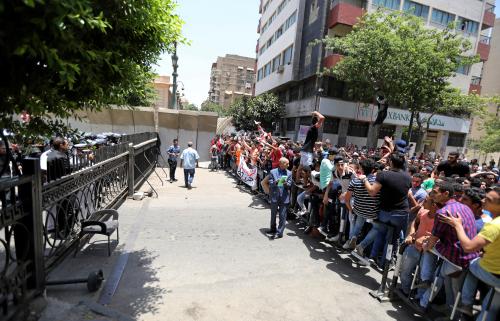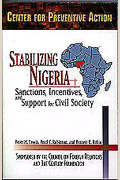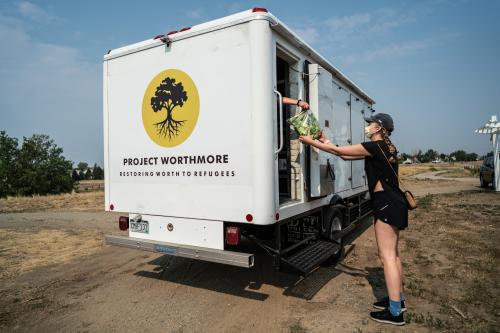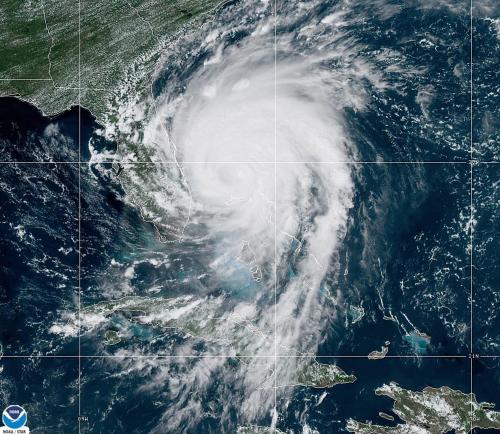Every September in New York, heads of states and senior officials from around the world gather at the U.N. General Assembly to deliberate on the world’s most pressing crises. This year the focus was on the 65 million displaced persons worldwide, the largest human displacement since World War II.
Against this backdrop, Brookings convened a forum in New York to discuss the largely unexamined urban dimension of the refugee situation in Europe and in particular Germany, where 1.1 million refugees and migrants arrived last year. Here are six key themes that emerged from the forum:
Cities matter.
“What happens in cities is not only important in itself, but it also works as a role model for the rest of society.” António Guterres, former prime minister of Portugal and former United Nations High Commissioner for Refugees.
Refugees don’t move to nations, they move to cities. At the national level, officials deal with questions about borders, citizenship, and the like. But it’s at the city-level that one must address the immediate needs of existence: shelter, food, clothing, medical care, schools, and job skills. And it’s at the city-level that officials, community leaders, faith-based groups, and civil society grapple with the inherent difficulties of social integration.
This paradigm is starting to permeate the thoughts and actions of national and international officials and tremendous learning is beginning to take place between cities.
Open up labor markets.
“Our mantra is earn, learn and belong. Get refugees onto an on-ramp into the community.” Annise Parker, former mayor of Houston.
Having a job and providing for oneself and one’s family, serves an important psychological and social function for refugees: it allows for them to feel valued and valuable, and to develop a sense of belonging. It also brings them into daily contact with locals and this helps build bridges – and solidarity – between refugees and host communities. Yet access to labor markets is difficult in many European countries.
“In Europe, the assumption is that you need training before you can get a job. The American assumption is you get a job, you get the training. You get social integration.” David Miliband, president and CEO, International Rescue Committee.
Language acquisition is one significant barrier. But in Germany and many other European countries, rigid rules for skills training and job credentials mean that it can take up to 5 years for a refugee to become fully employable and employed. Given the nexus between jobs and integration, coupled with an aging population and shrinking labor force, European countries should make both language acquisition and skilled work for refugees a priority. With regard to the latter, the process should be streamlined to take as little time as possible, ideally no more than a few months.
Education for every child.
“We have many children that arrived in Athens, and, some of them, for two or three years, they have not attended schools.” Georgios Kaminis, mayor of Athens, Greece.
Getting refugee children into school should be a priority. The classroom setting provides an opportunity for children to learn from and about one another as well as develop interpersonal skills. But many challenges lie ahead in Europe. In Germany, for example, schools have been overwhelmed by the sheer number of refugee youth. There is both a lack of teachers and overcrowded classrooms. Additionally, many teachers do not have the training to deal with the special needs of refugees. These needs range from new language learners, to over-aged students, to the psychosocial trauma some refugee youth bring with them. Addressing the situation will require greater investment at the local level for more teachers, better training, and ensuring that learning environments meet the needs of refugees and local students alike.
The varied faces of civil society.
“We were not very prepared as a city … but the good thing that came out of this was a very spontaneous cooperation between the city government, civil society, established social organizations, and new organizations that started in a second.” Arnd Boekhoff, founder of Hanseatic Help e.V.
Civil society plays an important role for providing assistance when government is slow or unable to adequately respond to the economic or social needs of refugees. In the case of Hamburg, the Hanseatic Help e.V. nonprofit organization was created nearly overnight, mobilizing thousands of volunteers to help some 70,000 refugees who arrived there in 2015. Similarly, Save the Children has been an essential part of supporting large numbers of unaccompanied refugee children in Berlin.
“What we experienced from the public administration in our city [Berlin] was a very slow reaction to the needs of the people…at the same time, civil society stepped in, supported, and tried to do its best…” Philipp Appel, manager of corporate partnerships and foundations, Save the Children Germany.
These two examples highlight the vital role of civil society efforts and the ways in which voluntarism is transforming how cities and local networks respond in real time. However, the scale and scope of these efforts cannot be sustained without support from the government and private sector.
Social integration is a two-way street.
“What are you teaching [refugees], what are you showing them, what messages are you sending them, what pamphlets are you printing for them: these subtle decisions are shaping the refugee and relocation experience.” Lara Setrakian, CEO, Co-Founder and Executive Editor, News Deeply.
Successful integration requires local government, host communities, and refugees to better understand one another. This will require community outreach, engagement, and dialogue with refugees and local communities alike. Municipal authorities and civil society will need to lead, but refugees should also play an active role in these efforts. Not only do refugees have a stake in integration policy, they are among the most capable of identifying problems early on and bringing fresh ideas for solutions.
Confront and address populist politics and xenophobia.
“There’s a lot of unease, there’s a lot of fear, a lot of suspicion. That has translated into forms of identity politics and bigotry that are throwing up barriers in Europe and the United States to refugees. And on the front-lines of this are local actors and cities.” Roger Cohen, columnist, The New York Times.
Officials and civil society should not overlook or belittle populist politics. They throw up barriers to refugees and make integration much harder. It’s at the city-level where concerns, misinformation, misperceptions, and suspicions about refugees should be addressed. Likewise, it’s important to ensure that refugees get to know their local communities and how local government works. And it’s essential not to lose sight of the fact that populist politics, xenophobia, and violent extremism are natural allies. Therefore, reception centers and reception programs should identify and address early on the special needs of unaccompanied minors, refugee youth, and young adults to ensure they do not fall through the cracks and become marginalized and vulnerable.
The refugee situation demands action, ingenuity, and compassion, but it also demands a greater focus on the local level, with a better understanding of the essential roles played by cities, civil society, and refugees themselves. It is our earnest hope that the forum and its outcomes help elevate the policy discourse on the role of cities in the European context, as well as identify lessons and opportunities that are portable for other cities around the world.
To watch the forum in its entirety, click here: brookings-edu-2023.go-vip.net/events/cities-and-refugees-the-european-response/.






Commentary
Refugees don’t just come to nations; they move to cities
October 3, 2016